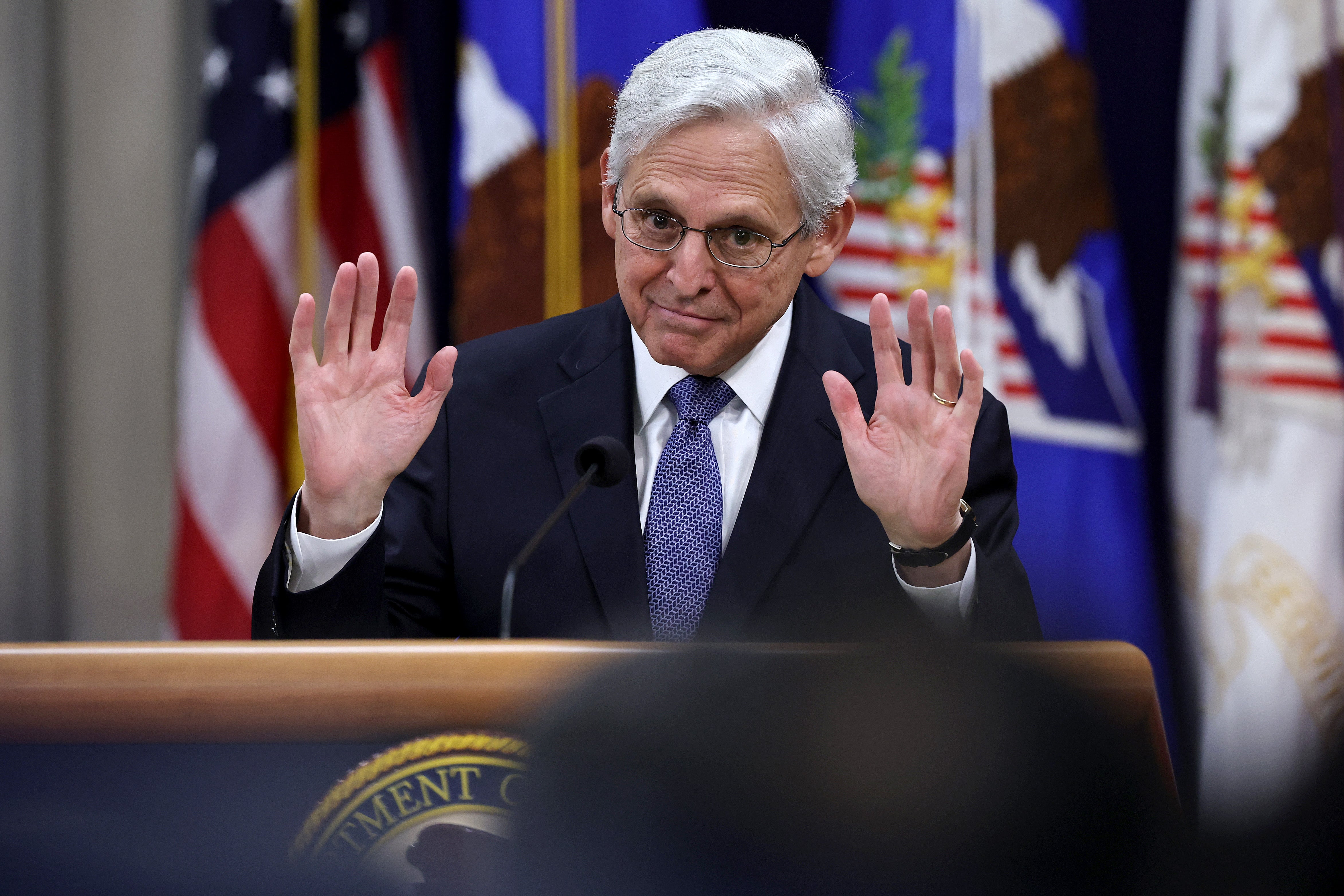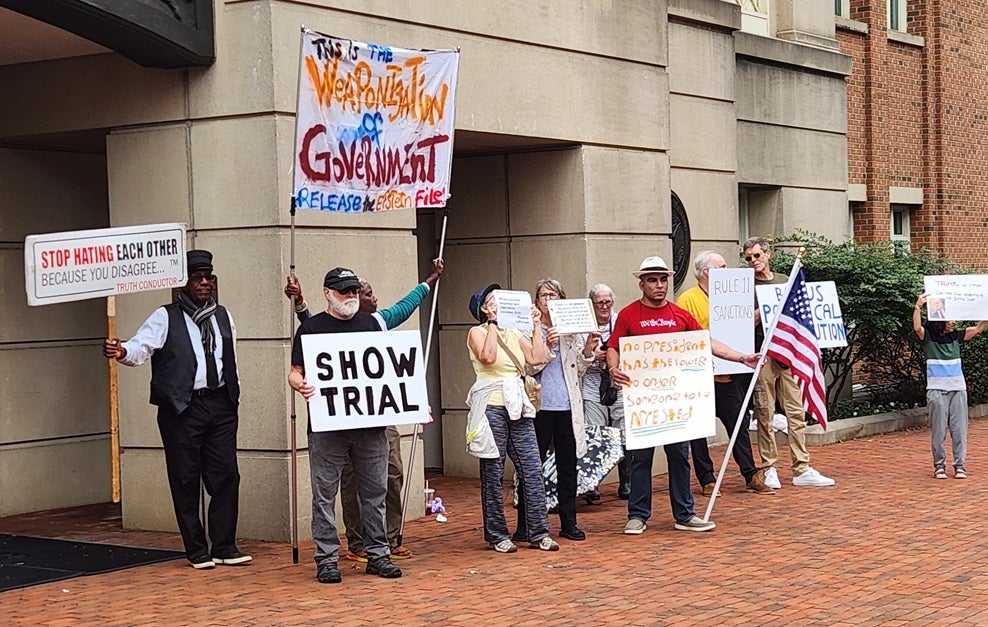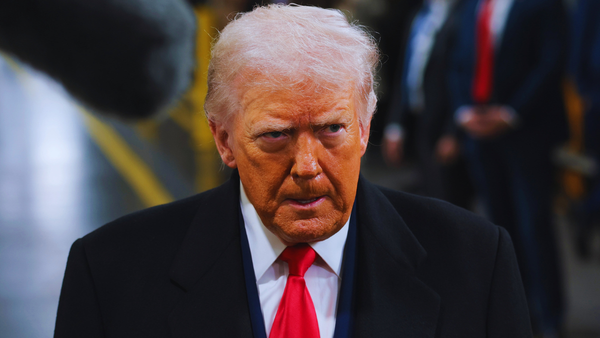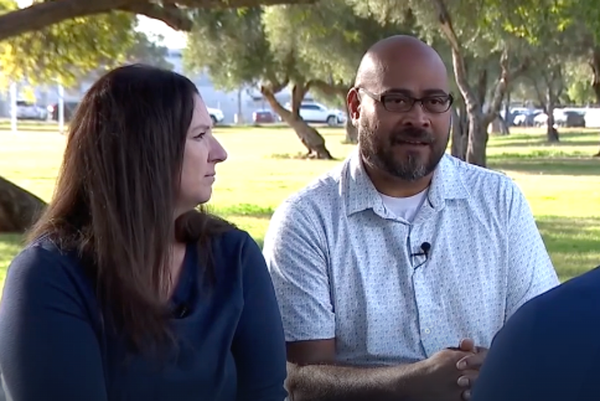Donald Trump was very clear in his 2024 bid for the presidency: he wasn’t just running for the White House — he was coming after his enemies.
Now, James Comey is becoming the first member of the Washington establishment and supposedly Democratic-aligned “Deep State,” to learn what that means.
On Wednesday morning, the former FBI director was arraigned on two counts at a federal courthouse in Alexandria, Virginia. Facing two counts, Comey did not speak to reporters and only uttered a few words in court as he pled not guilty to lying to Congress and obstruction.
Democrats raised the issue with a combative and verbally abusive Attorney General Pam Bondi during a hearing held by the Senate Judiciary Committee on Tuesday, but for many in the party the reality is simple: Trump ran, and won, partly on the issue of weaponizing the Department of Justice against Democrats in large part due to the failure of every possible mechanism of law enforcement to take prosecution of his many alleged crimes seriously.
Most members of the party — and an even larger share of the voting base — agree that the failure of Democrats to immediately begin criminal proceedings after January 6 and the transfer of power to Joe Biden’s administration was complete turned out to be a crushing mistake.
Despite two prosecutions of the president being launched around the former president’s actions in the final days of his presidency and his departure from the White House, then-Attorney General Merrick Garland failed to see either case conclude before the 2024 elections took place. The same went for prosecutions at the state level, in New York and Georgia.
Since January, more and more senior members of the party have come out to acknowledge this reality. One of the most influential admissions came from Jerry Nadler, formerly the highest-ranking Democrat on the House Judiciary Committee, now retiring in 2026. Nadler said earlier this year: "Garland only started the prosecution after he was in effect forced to by the report of the Jan. 6 committee and the criminal referral. The evidence the Jan. 6 committee used was available from the beginning."
"Had they proceeded with those prosecutions, I think he would have been convicted and we’d have a different president now,” concluded Nadler, who added: “Merrick Garland wasted a year."
To be clear, though: Garland didn’t entirely waste a year. He spent much of 2021 pursuing January 6 cases, though they weren’t the ones that ended up mattering: over the course of Biden’s term, the Department of Justice identified, prosecuted, and secured convictions against more than 1,200 participants in the January 6 riot, often combing through hours of grainy bodycam and social media footage to hunt down Trump-supporting J6ers who’d beaten cops, stolen and defaced property, or committed other crimes on the day of the attack.
Donald Trump pardoned them all.
Garland came under intense political pressure to indict Trump in 2022, especially after the publication of the January 6 committee’s full report and the panel’s submission of criminal referrals to the Justice Department, including for the former president. In rare comments about the case that year, Garland said that Trump’s potential 2024 candidacy would not affect his handling of the case.
“We don't pay any attention to other issues with respect to [the January 6 investigation],” Garland told NBC News.

The attorney general’s inexplicable naïveté surrounding the decision to wait until January 2022 to begin a formal investigation into the effort by the Trump team to pressure states and Congress to accept slates of false electors stemmed from that refusal, born out of fear, to make any decisions that could be seen as politicizing the agency.
It forced Garland to ignore the reality: that Trump’s third bid for the presidency was in many was an overt bid to both fund his legal defense and, in the end, secure immunity from accountability. The stalling was the point, and Garland himself contributed to that dynamic by practically waiting until the midterms to issue a formal indictment.
Another factor worth considering: a successful prosecution was the only way for Garland to avoid the appearance of a weaponized Justice Department in the hands of a Democratic president. Trump’s acquittal would have tarnished the department’s reputation for obvious reasons, and the successful running-out-the-clock by the once and current president allowed him to keep his promise to erode the DoJ’s independence, forcing out career prosecutors who refused to target the president’s enemies with flimsy cases.
Garland and the Bidenworld Democrats who picked him for the job (somewhat ironically as a middle finger to Trump) aren’t the only ones reaping political consequences for the failure to get the cases against Trump over the finish line. In Georgia, Fulton County District Attorney Fani Willis is suffering her own political humiliation after being tossed off of the case against the Trump team’s efforts to pressure state officials after the 2024 election due to misconduct and another RICO case she brought against the rapper Young Thug which ended largely without fireworks.
One local Georgia columnist wrote of Willis late last month: “It’s also important to note that Willis launched her grand-jury investigation into Trump’s attempt to steal the election in February 2021, at a time when federal authorities were showing little stomach for doing so. It should not have been left to a local prosecutor to handle a case of such magnitude and consequence...If she blew it, then Attorney General Merrick Garland and the federal Department of Justice blew it even worse.”

Comey, more than most, should understand the weight of living under the reputation of politicizing a supposedly nonpartisan office. During his time at the FBI, he oversaw two investigation against political figures with massive electoral implications: the investigation into the Trump campaign’s alleged ties to Russia, and the probe into Hillary Clinton’s use of a private email server for State Department business.
Both ended with muted thuds; Clinton, he declared, was “reckless” but not malicious or lawbreaking, earning him wrath from Democrats who saw the timing of his nothingburger announcement as fatal to Clinton’s 2016 campaign. He never saw the end of the investigation into Donald Trump’s campaign up close: he was fired by the president before then. But that, too, ended without ties between the Trump campaign and Russia’s government ever being established, or charges related to that allegation ever coming to be.
Now he and others who spent so much energy trying to avoid the appearance of politicizing the justice system are facing one that has been weaponized for political purposes against them. Comey’s own charging came just under the deadline imposed by the statute of limitations for his two alleged crimes — proof that the president has a long memory.
Here the threads can be seen connecting the Democratic Party’s response to this failure to the present day. While Democrats have few options as it stands now to counter politicized prosecutions at the Justice Department, the anger the party’s voters feel towards senior leaders for this refusal to meet the moment and take political risks is palpable.
Even as Chuck Schumer accedes to voter anger and embraces the idea of wielding leverage against the Republicans, he’s lambasted as a “human flat tire” by Jon Stewart and other fed-up Democrats.
Half-hearted measures that came too late defined, for many on the progressive wing of the Democratic Party, the entire Biden presidency. With others on the president’s enemies list reportedly including New York state Attorney General Letitia James and Sen. Adam Schiff, the entire breadth of the party’s ideological spectrum will soon likely be coming to terms with that definition, too.
Rubio slips Trump note that peace deal ‘very close’ as Trump says he may visit Gaza
Trump considering Middle East trip as Israel-Hamas peace talks ‘going well’: Live
Trump’s ‘Antifa roundtable’ was so much worse than you’re imagining
Bad Bunny's music streams soar since 2026 Super Bowl halftime show news
Judge forces Trump administration to tell what security clearances Musk has
Trump is calling Republicans asking ‘What’s going on with Marjorie?’







